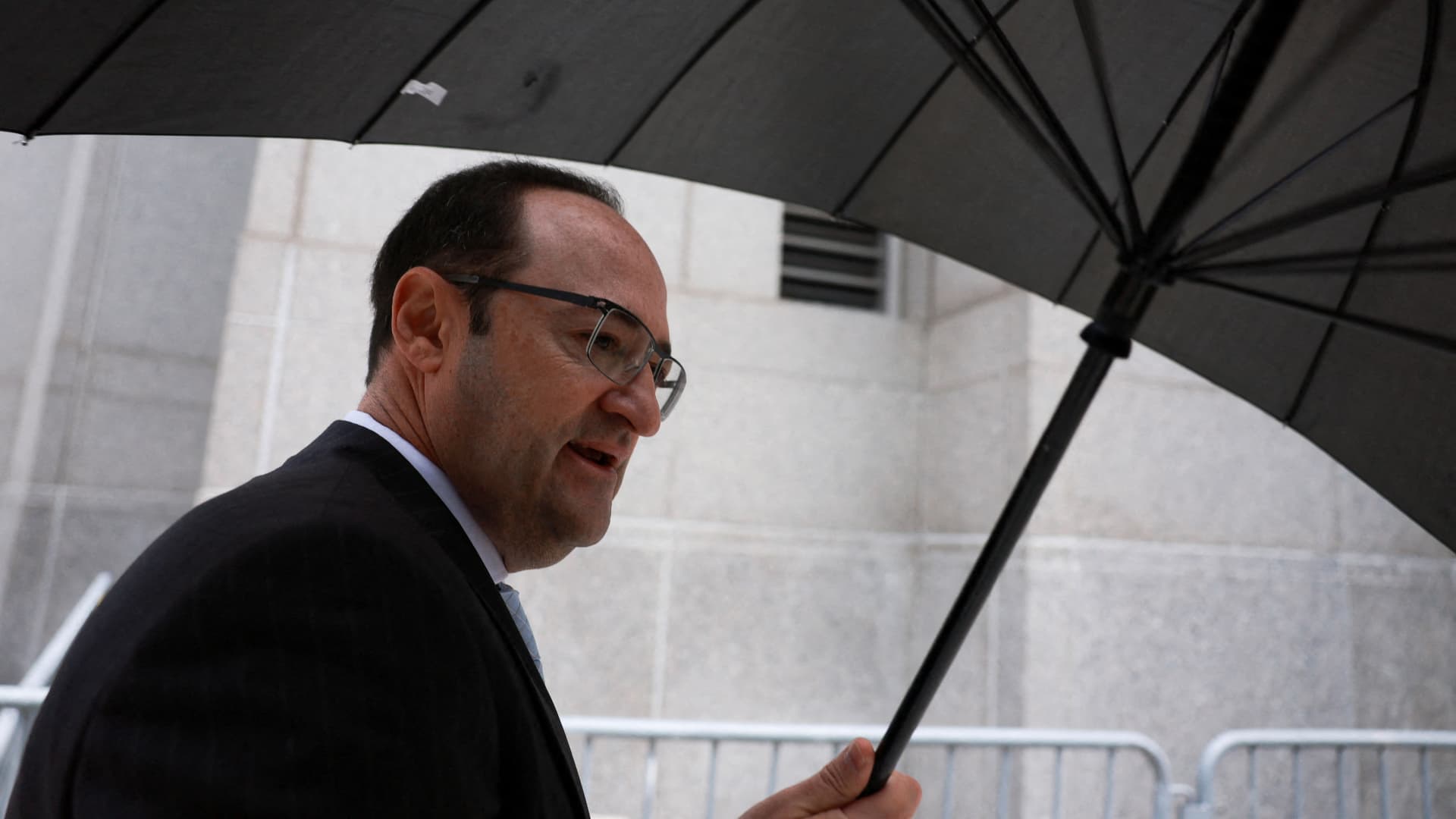China’s Defense Minister Dong Jun speaks during the 21st Shangri-La Dialogue Summit on June 2, 2024 in Singapore.
Nhac Nguyen | AFP | Getty Images
SINGAPORE – China’s Defense Minister Admiral Dong Jun vowed that anyone who wants to separate Taiwan from China will face “self-destruction.”
At the Shangri-La Dialogue in Singapore, the admiral called on the “Forces for Taiwan Independence” to “abandon the illusion and return to the right path of reunification.”
“Anyone who dares to separate Taiwan from China will only end in self-destruction,” he said.
In response to questions, Dong reiterated China’s position that Taiwan is part of China and said Beijing is committed to peaceful reunification.
Taiwan is a democratically self-governing island and inaugurated a new president on May 20th.
In his speech and Q&A, Dong repeatedly blamed separatist forces for the erosion of the “One China” principle, which expresses Beijing’s view that it has sovereignty over Taiwan. The admiral said newly elected Taiwan President Lai Ching-te made an “obvious” statement about his ambitions for Taiwan’s independence in his inaugural speech.
He also accused the ruling Democratic Progressive Party of trying to change the island’s constitution to “erase Chinese identity,” thereby preventing people-to-people exchanges between Taiwan and mainland China and increasing its military capabilities to move toward independence urge.
Taiwan has been buying U.S. military equipment for decades, with recent purchases including advanced M1A2 Abrams tanks, modernized F-16 fighters and long-range artillery systems.
“External Forces”
The Chinese defense minister also targeted unnamed “foreign forces,” claiming they were affiliated with Taiwanese separatists.
“We know that some major powers continue to undermine the One China principle, distort facts and even misinterpret UN General Assembly resolutions,” Dong said.
Without naming any specific country, Dong also claimed that the major power had “violated its commitment to China when we established diplomatic relations.”
“They continue to test China’s red lines, such as official engagement and arms sales to Taiwan,” he said.
“This kind of behavior sends very wrong signals to the Taiwan independence forces and makes them very aggressive. “I think it’s clear what the foreign power’s goal is: they’re trying to contain China using Taiwan.”
The US does not have a mutual defense agreement with Taiwan and is not obliged to defend the island. But the Taiwan Relations Act of 1979, enacted after the U.S. transferred diplomatic recognition to Beijing, states that the U.S. “shall provide to Taiwan such defense articles and defense services” as may be necessary to “maintain Taiwan in… “enable me to maintain adequate self-defense capabilities”.
Although Dong had already devoted part of his speech to addressing China’s concerns about Taiwan, he continued to address these issues in his first response during the question-and-answer session. When reminded by plenary chair Bastian Giegerich of the International Institute for Strategic Studies to answer delegates’ questions on other topics, Dong asked to finish his answer on Taiwan, describing it as “the core of our core interest.” .
He added: “Faced with the strong People’s Liberation Army, their efforts will be in vain and their efforts can only lead to accelerated demise.” [This will] This only undermines the interests of the people of Taiwan. And that’s the last thing we want to see in China.”
Tensions in the South China Sea
Dong also addressed other questions, including one related to Philippine President Ferdinand Marcos Jr.’s remark that the killing of a Filipino citizen in the South China Sea was “very close” to an act of war.
While the defense secretary claimed that the Philippines illegally docked its landing ship at Second Thomas Shoal in 1999, he said Beijing and Manila have peacefully discussed and worked on the issue.
Read more from the Shangri-La Dialogue
Dong pointed out that the two countries have reached several agreements that have been recognized by the current and previous Philippine governments, such as allowing supplies to be delivered to the ship garrison. Manila is sending resupply missions to the shoal of a small garrison of troops living aboard an aging warship that intentionally ran aground in 1999 to protect Manila’s maritime claims.
“But lately they’re starting to not recognize it [these agreements] at all. This is a unilateral breach of their promise… I think these are blackmail and kidnapping rules. We always talk about a robust international order, [but] I don’t think that’s even morally right,” he said.
In contrast, the Chinese defense chief described the Chinese coast guard’s actions as “very restrained in accordance with our law.”
“Our policy has been consistent for many decades. We are committed to a peaceful resolution of disputes. But I would also like to say that our tolerance for deliberate provocation will be limited.”
While delegates asked questions about other topics such as the ongoing conflicts in Ukraine and the Middle East, Dong focused his answers primarily on Taiwan and the South China Sea.
Source link
2024-06-02 04:36:42
www.cnbc.com














